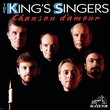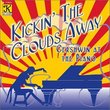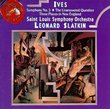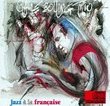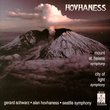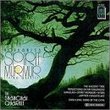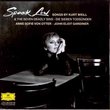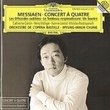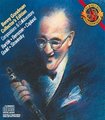| All Artists: Arnold Schoenberg, Pierre Boulez, BBC Symphony Orchestra, Members of the London Sinfonietta, John Constable, John Shirley-Quirk Title: Schönberg: Das Chorwerk Members Wishing: 1 Total Copies: 0 Label: Sony Release Date: 10/10/1990 Genres: Pop, Classical Styles: Vocal Pop, Opera & Classical Vocal, Historical Periods, Early Music, Modern, 20th, & 21st Century Number of Discs: 2 SwapaCD Credits: 2 UPCs: 074644457124, 5099704457123 |
Search - Arnold Schoenberg, Pierre Boulez, BBC Symphony Orchestra :: Schönberg: Das Chorwerk
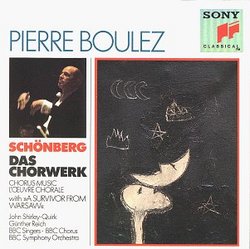 | Arnold Schoenberg, Pierre Boulez, BBC Symphony Orchestra Schönberg: Das Chorwerk Genres: Pop, Classical
At various stages of his life Arnold Schoenberg took to writing music for chorus--a cappella and accompanied. Not all of these are masterpieces, and many are very difficult to perform. But there also is great music here--m... more » |
Larger Image |
CD DetailsSynopsis
Amazon.com At various stages of his life Arnold Schoenberg took to writing music for chorus--a cappella and accompanied. Not all of these are masterpieces, and many are very difficult to perform. But there also is great music here--music that pushes the boundaries of tonality, 12-tone music, and pieces like the folksong arrangement Schein uns, du liebe Sonne, as beautiful as choral music gets. --David Vernier Similarly Requested CDs
|
CD ReviewsHidden Treasure Bob | Mobile, Alabama United States | 10/08/2003 (5 out of 5 stars) "If you get to know Schoenberg's music, you will quickly notice that he has a real knack when it comes to writing for the choir. That's why I'm surprised that this fine recording is so hidden! The folksongs are good, the six pieces for mens' choir are excellent, and the two canons are incredible (especially "O dass der Sinnen..."). "Der Wunsch des Liebhabers" is very pretty in a sort of a minimalist way, and the only stinker in the whole set is "Du sollst nicht, du musst nicht."" The whole range of choral works in fine performances, though Christopher Culver | 06/02/2010 (4 out of 5 stars) "Among the early Boulez recordings that Sony reissued in the 1990s, this two-disc set of Arnold Schoenberg's choral works went back out of print quite soon. Luckily Sony has recently issued a complete box set of Boulez conducting Schoenberg in two parts, with all these pieces in them, and you'd do well to pick that up, as this is good music. This collection of choral works isn't quite complete, as it lacks the juvenalia and the incidental canons, but the opus-numbered works are here.
The big attraction of this two-disc set was "A Survivor from Warsaw" op. 46 (1947). Written for narrator, choir and orchestra, the libretto consists of the memories of a Polish Jew who made it through the Nazi onslaught, but witnessed terrible atrocities along the way. The narrator reports with growing agitation how ghetto inhabitants beaten up by Nazi soldiers and forced into ranks for deportation began to sing the "Shema Israel". As a rousing climax, the choir then bursts into that ancient prayer. While the match of the English narration to the music is a bit clunky -- Schoenberg learnt English only late and imperfectly and didn't have a good grasp of its prosody -- this is nonetheless one of my favourite works by the composer. It should also serve to dispel all those myths that Schoenberg was academic or obtruse, for yes, this is a 12-tone work, but its humanity is immense. Another reason this set is noteworthy is that it includes Schoenberg's last works, the three sacred settings collected under opus number fifty. "Dreimal tausend jahre" op. 50a is a straightforward (though still 12-tone) setting of a poem by Dagobert Runes. "Psalm 130" op. 50b introduces elements of dissonance alternates speaking and singing parts. The unfinished "Moderner Psalm Nr. 1" op. 50c brings in an orchestra and the chorus alternates with a male speaking part. But not all late Schoenberg is twelve-tone. The immediately preceding work, Three Folksongs for Mixed Choir op. 49 (1948) is a setting of modal melodies from the 15th and early 16th centuries "Kol Nidre" op. 39 for speaker, mixed chorus and orchestra (1938) is a lovely setting of the Yom Kippur prayer in a somewhat idiosyncratic G minor. Though not quite as dramatic as "A Survivor from Warsaw", it shows the same effective scoring, and Schoenberg's setting of the English flows much better here. "Friede auf Erden" op. 13 (1907), a setting of a Christmas poem, is the most grandiose of the a cappela works here, a 10-minute work of varied sections that is one of Schoenberg's last efforts in tonality (though highly chromatic). The 3 Satires for Mixed Chorus op. 28 (1925) are barbs against the composer's enemies written with the twelve-tone method. The first two critique practioners of free atonality that Schoenberg thought incompetent. The third attacks Stravinsky who had recently adopted neo-classicism, adding viola, cello and piano and developing three canons. It's a brilliant piece of serialist writing, but in comparison the Six Pieces for male chorus a cappella op. 35 (1929-1930), setting Schoenberg's own poetry, are rather dreary and unmemorable. This set illustrates quite well how varied Schoenberg's music is, pursuing the same expressionist needs through very different languages. Not everything here is brilliant, and the sound quality is not always up to modern standards, but there are some excellent moments here." |

 Track Listings (10) - Disc #1
Track Listings (10) - Disc #1